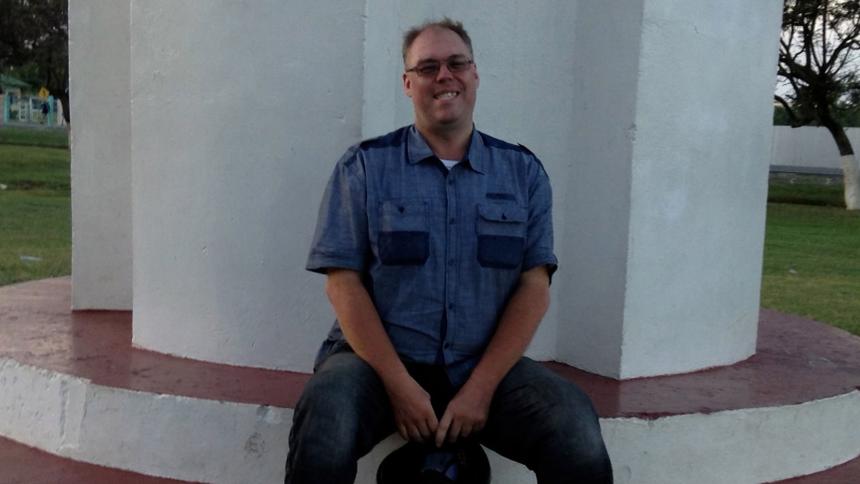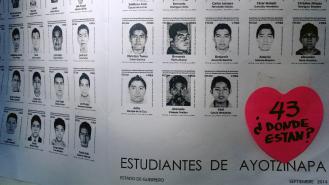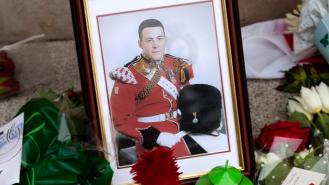
Peter Moore’s harrowing kidnapping in Iraq
In Missing Presumed Dead, we hear the stories of real people’s disappearances – how they survived and how they were rescued – from their own points of view. The series starts Tuesday, 24th September at 9pm on Crime+Investigation.
In May 2007, British IT consultant Peter Moore was abducted by a militia group in Baghdad. As one of the most harrowing hostage situations of the Iraq War, his kidnapping revealed the dangers faced by foreigners working in the country during this tumultuous period.
Moore’s abduction
Peter Moore was working as an IT consultant in Baghdad, helping the Iraqi Ministry of Finance manage its financial systems. On 29th May 2007, Peter and four British bodyguards – Jason Swindlehurst, Jason Creswell, Alec MacLachlan, and Alan McMenemy – were taken hostage in broad daylight.
Around 100 armed men dressed as Iraqi police officers stormed the Ministry of Finance building in a meticulously planned operation. The assailants quickly overpowered the building’s guards and escorted Peter and his team into waiting vehicles. Initially under the impression he was being arrested, Peter only realised the severity of his situation upon his captors’ removal of his clothes during the journey to Sadr City.
The hostages' harrowing ordeal
For Peter and his bodyguards, the ordeal that followed was nightmarish. They were held in various locations across Iraq and were frequently moved to avoid detection by coalition forces. At the time, the Guardian reported that the hostages were taken to Iran within a day of their kidnapping, although the Foreign Office contested this.
The conditions of the locations where Peter was held were grim, with limited access to basic necessities. His glasses were taken from him early in the kidnapping, leaving him unable to see clearly until his release day.
Peter spent much of his early captivity chained side-by-side with Alan McMenemy in cramped rooms. He was beaten almost daily, subjected to severe punishment and separated from Alan at some point during the ordeal.
In early 2009, an Iraqi Major removed his chains, and Peter was allowed to watch tennis on television and play table tennis with the man. As his situation improved, he became increasingly sure that his companions had been killed.
Tragically, Peter’s convictions were correct – his four bodyguards did not survive the captivity. Jason Swindlehurst and Jason Creswell were killed in 2009, with their bodies handed over to the British authorities in June of that year. Alec MacLachlan was killed later that year, with his body returned in September 2009. Alan McMenemy was believed to have been killed around the same time, although his body was not returned until 2012.
The exact circumstances surrounding the deaths of Peter’s bodyguards remain unclear, but it is believed that they were executed by their captors.
Peter's release
Peter Moore was eventually released on 30th December 2009, after 946 days in captivity. On the day of his release, he was convinced he was going to die, having been bundled between cars and locations with a blanket over his head.
His release was the result of prolonged and complex negotiations involving British, Iraqi, and Iranian intermediaries. It was a rare piece of good news in an otherwise bleak narrative around the Iraq War. His survival was due in part to his perceived value as a bargaining chip, as well as the international pressure to release him.
Peter later recounted his experiences in captivity, describing the psychological toll of isolation, the fear of death, and the constant uncertainty about his fate.
The kidnapping’s aftermath and impact
The kidnapping of Peter Moore and the murder of his bodyguards highlighted the dangers faced by foreign workers in Iraq. Ultimately, it led to increased security measures and a re-evaluation of the risks associated with working in conflict zones.
For Britain, the incident was a stark reminder of the human cost of its involvement in Iraq. The deaths of the four bodyguards sparked outrage and prompted questions about the British government’s handling of the situation.
Though relieved over Peter’s survival, the families of these four men were left to grapple with the loss of their loved ones, facing unanswered questions over the circumstances of their deaths.
On a broader level, the kidnapping underscored the complex dynamics of the Iraq conflict. It illustrated the extent to which various militias were willing to go to achieve their objectives, using kidnapping and murder as tools of political leverage. Ultimately, Peter’s kidnapping revealed the complexity of the region’s geopolitics during the early 2000s.








